108 DIVYA DESAM IN KERALA
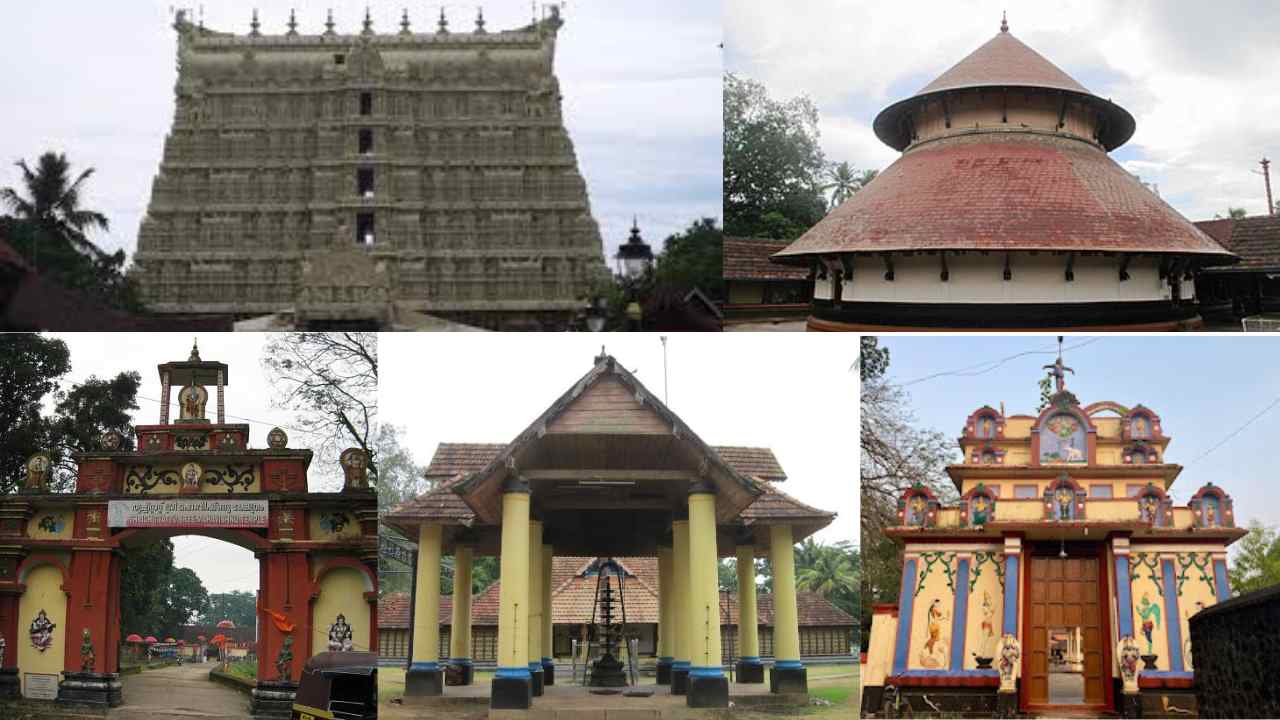
Introduction
Divya Desams, the 108 sacred Vishu temples are revered by Vaishnavites across India as earthly abodes for Vishnu. Revered hymns of Alvars revere these temples as places where his divine presence can most strongly be felt on Earth. Scattered throughout India and Kerala in particular are home to eleven such Desams which offer unique spiritual experiences through stories, architectural splendor and religious significance. These Desams provide devotees a remarkable spiritual journey – with each temple having its own history, architectural splendor and cultural history that makes each unique spiritual journey truly transcendent!
Kerala, known as “God’s Own Country,” is famed for its lush landscapes, tranquil backwaters, and vibrant cultural traditions. Kerala also features an extraordinary spiritual landscape with temples known as Divya Desams that add mystical appeal. Each one boasts centuries of devotional dedication along with stunning architectural brilliance as well as being imbued with divine presence that permeate their walls – giving these structures their own distinct identities that mark each temples place of worship as they celebrate not only religious significance but also stunning architectural brilliance as they celebrate spiritual significance as religiously significant religious institutions Divya Desams are celebrated.
Temples play an invaluable role in Kerala, acting as living testimony of its vibrant spiritual and cultural life. A visit to one of Kerala’s Divya Desams can be like embarking on an inner peace pilgrimage; each temple serves as an important step toward divine connection and inner calmness. Hymns chanted at Alvars, rituals performed, and legends associated with each Divya Desam add depth and variety to an already fulfilling pilgrimage experience for devotees while offering intriguing history lessons for historians and travelers.
This blog delves deep into the spiritual heritage and essence of Kerala’s 11 Divya Desams, exploring their special features, historical significance and profound devotion they inspire. Join us as we journey through these sacred spaces that hold such reverence within Kerala’s spiritual landscape!
108 Divya Desam List District wise
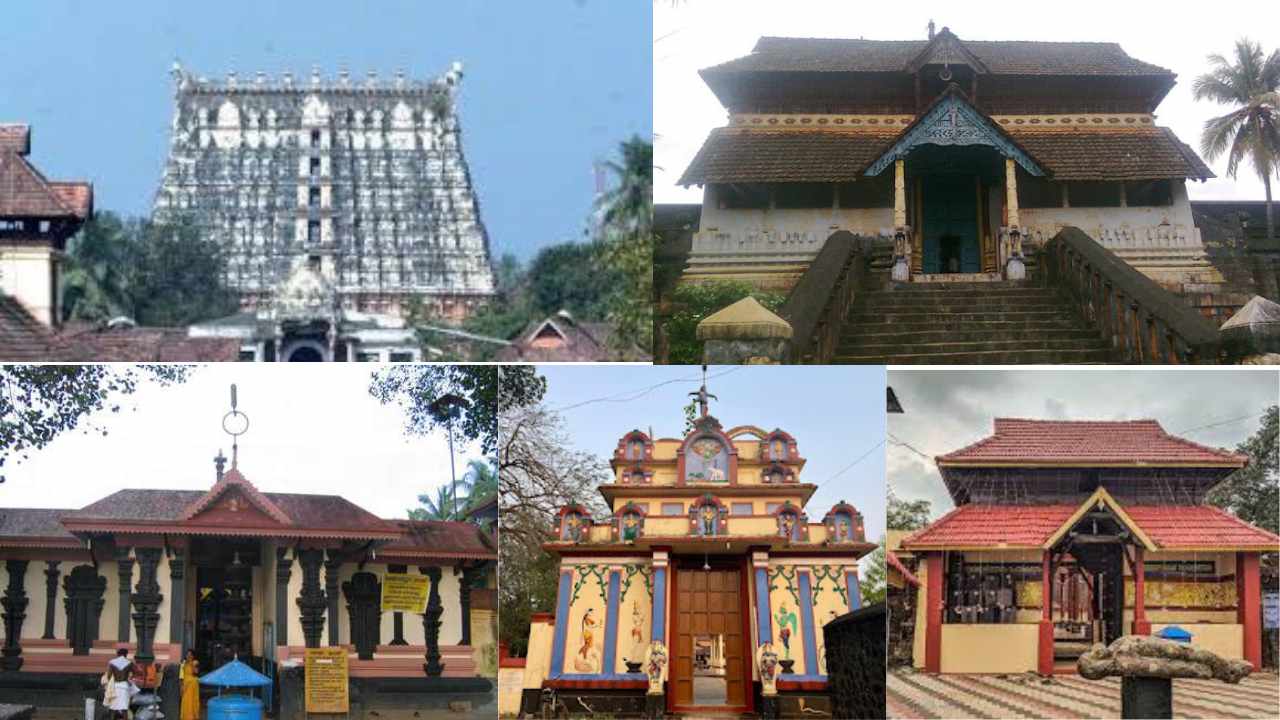
Out of 108 Divya Desam temples, 11 temples are in Kerala. Please find below 108 divya desam list district wise
Malai Nadu (Kerala)
- Sri Padmanabhaswamy Temple
- Thirukatkarai
- Moozhikkalam
- Tiruvalla
- Thirukadithanam
- Sengunroor
- Thiruppuliyoor
- Thiruvaaranvilai
- Thiruvanvandoor
- Thiru Naavaay
- Viththuvakkodu
Palakkad District
Sri Uyyavantha Perumal Temple, Thirumittakkode
Malappuram District
Sri Naavaay Mugundha Perumal Temple, Thiru Naavaay
Ernakulam District
Sri Moozhikkalathaan Perumal Temple, Thirumoozhikkalam
Sri Kaatkarai Appa Perumal Temple, Thirukatkarai
Kottayam District
Sri Adbhuta Narayanan Temple, Thirukadithanam
Pathanamthitta District
Sri Vallabha Perumal Temple, Thiruvalla
Sri Maayapiran Perumal Temple, Thiruppuliyoor
Sri Parthasarathy Perumal Temple, Thiru Aranmula
Alappuzha District
Sri Imayavarappa Perumal Temple, Thirucchenkundroor
Sri Paambanaiyappa Perumal Temple, Thiruvanvandoor
Thiruvananthapuram District
Sri Padmanabhaswamy Temple, Thiruvananthapuram
Divya Desam in Kerala
Divya desam in Kerala this section covers the 11 divya desam temples in kerala.
1. Sri Uyyavantha Perumal Temple
Sri Uyyavantha Perumal Temple
Location: Thiruvithuvakkodu, Palakkad
Perumal’s Name: Sri Uyyavantha Perumal
Thayar’s Name: Vithuvakottu Valli
Temple’s Old Name: Thiruvithuvakkodu
Vimanam’s Name: Utpala Vimanam
Temple Tank: Chakra Theertham
Azhwar: Nammalvar
District: Palakkad
Nearest Airport: Cochin International Airport
Nearest Railway Station: Shoranur Junction
Transport Bus Stand: Shoranur KSRTC Bus Stand
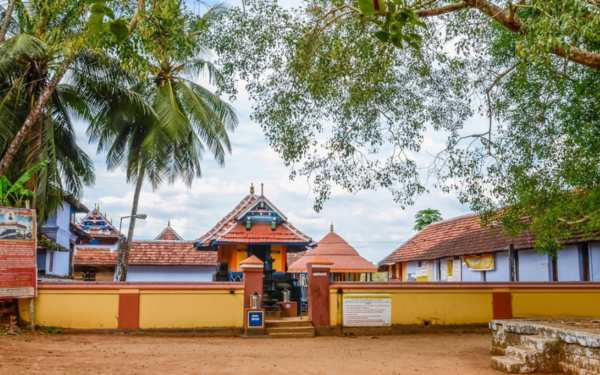
2. Sri Naavaay Mugundha Perumal Temple
Sri Naavaay Mugundha Perumal Temple
Location: Thiru Naavaay, Malappuram
Perumal’s Name: Sri Naavaay Mugundha Perumal
Thayar’s Name: Malarmangai Naachiyaar
Temple’s Old Name: Thiru Naavaay
Vimanam’s Name: Vedakara Vimanam
Temple Tank: Manduka Theertham
Azhwar: Nammalvar
District: Malappuram
Nearest Airport: Calicut International Airport
Nearest Railway Station: Tirur Railway Station
Transport Bus Stand: Tirur Bus Stand
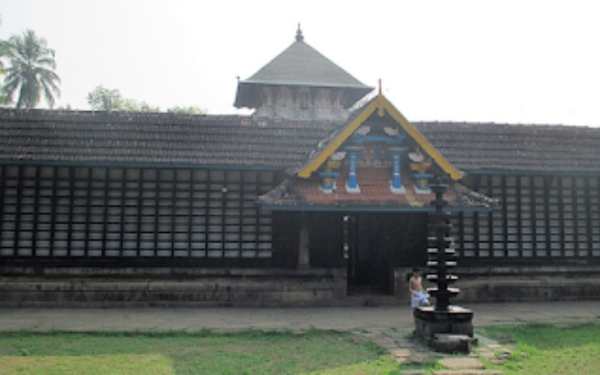
3. Sri Moozhikkalathaan Perumal Temple
Sri Moozhikkalathaan Perumal Temple
Location: Moozhikkalam, Ernakulam
Perumal’s Name: Sri Moozhikkalathaan
Thayar’s Name: Madhuraveni Naayaki
Temple’s Old Name: Thirumoozhikkalam
Vimanam’s Name: Vedakara Vimanam
Temple Tank: Bhagya Saras Theertham
Azhwar: Nammalvar
District: Ernakulam
Nearest Airport: Cochin International Airport
Nearest Railway Station: Angamaly Railway Station
Transport Bus Stand: Angamaly Bus Stand
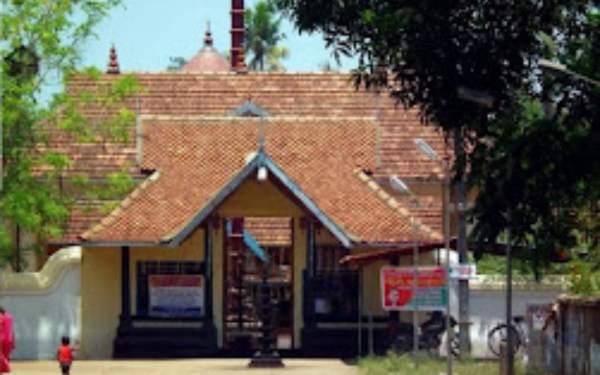
4. Sri Kaatkarai Appa Perumal Temple
Sri Kaatkarai Appa Perumal Temple
Location: Thirukatkarai, Ernakulam
Perumal’s Name: Sri Kaatkarai Appa Perumal
Thayar’s Name: Perunselva Naayaki
Temple’s Old Name: Thirukatkarai
Vimanam’s Name: Vijayakoti Vimanam
Temple Tank: Matsya Theertham
Azhwar: Nammalvar
District: Ernakulam
Nearest Airport: Cochin International Airport
Nearest Railway Station: Aluva Railway Station
Transport Bus Stand: Aluva Bus Stand
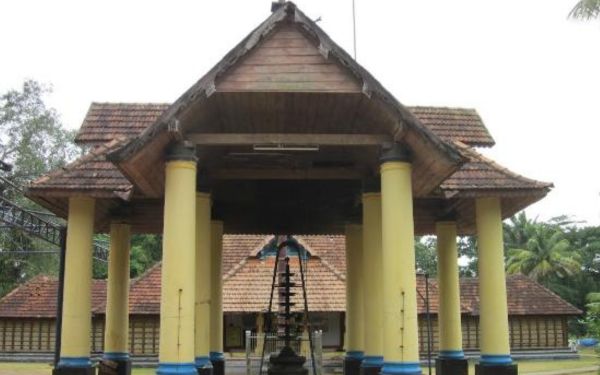
5. Sri Adbhuta Narayanan Temple
Sri Adbhuta Narayanan Temple
Location: Thirukadithanam, Kottayam
Perumal’s Name: Adbhuta Narayanan
Thayar’s Name: Karpagavalli Thayar
Temple’s Old Name: Thrikodithanam
Vimanam’s Name: Pushkala Vimanam
Temple Tank: Viraja Theertham
Azhwar: Nammalvar
District: Kottayam
Nearest Airport: Cochin International Airport
Nearest Railway Station: Changanassery Railway Station
Transport Bus Stand: Changanassery KSRTC Bus Stand
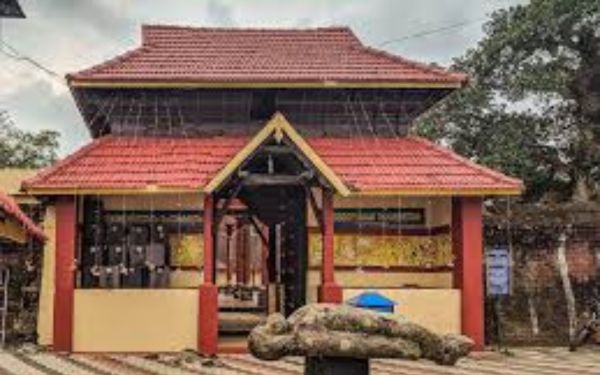
6. Sri Vallabha Perumal Temple
Sri Vallabha Perumal Temple
Location: Thiruvalla, Pathanamthitta
Perumal’s Name: Sri Vallabha
Thayar’s Name: Vatsalya Devi
Temple’s Old Name: Thiruvalla
Vimanam’s Name: Srikara Vimanam
Temple Tank: Chakra Theertham
Azhwar: Nammalvar
District: Pathanamthitta
Nearest Airport: Cochin International Airport
Nearest Railway Station: Thiruvalla Railway Station
Transport Bus Stand: Thiruvalla KSRTC Bus Stand
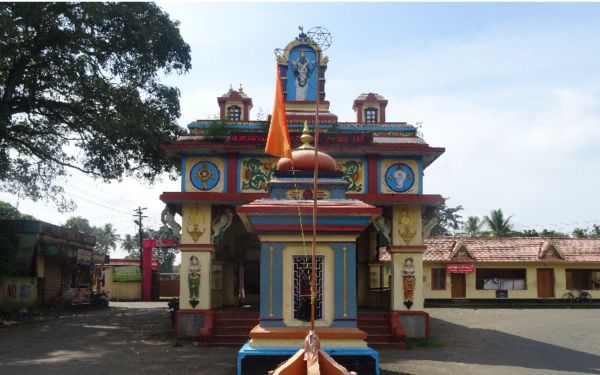
7. Sri Maayapiran Perumal Temple
Sri Maayapiran Perumal Temple
Location: Thiruppuliyoor, Pathanamthitta
Perumal’s Name: Sri Maayapiran Perumal
Thayar’s Name: Porkodi Naachiyaar
Temple’s Old Name: Thiruppuliyoor
Vimanam’s Name: Srikara Vimanam
Temple Tank: Maaya Theertham
Azhwar: Nammalvar
District: Pathanamthitta
Nearest Airport: Cochin International Airport
Nearest Railway Station: Chengannur Railway Station
Transport Bus Stand: Chengannur KSRTC Bus Stand
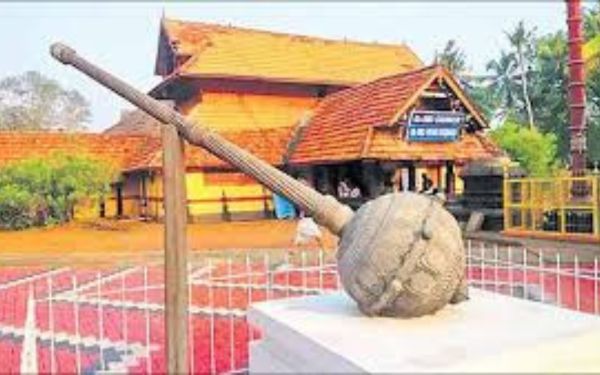
8. Sri Parthasarathy Perumal Temple
Sri Parthasarathy Perumal Temple Location: Thiru Aranmula, Pathanamthitta
Perumal’s Name: Sri Parthasarathy Perumal
Thayar’s Name: Padmasani Naachiyaar
Vimanam’s Name: Veda Vimanam
Temple Tank: Pamba Theertham
Azhwar: Nammalvar
District: Pathanamthitta
Nearest Airport: Cochin International Airport
Nearest Railway Station: Chengannur Railway Station
Transport Bus Stand: Chengannur KSRTC Bus Stand

9. Sri Paambanaiyappa Perumal Temple
Sri Paambanaiyappa Perumal Temple
Location: Thiruvanvandoor, Alappuzha
Perumal’s Name: Sri Paambanaiyappa Perumal
Thayar’s Name: Kamalavalli Naachiyaar
Temple’s Old Name: Thiruvanvandoor
Vimanam’s Name: Veda Vimanam
Temple Tank: Pampa Theertham
Azhwar: Nammalvar
District: Alappuzha
Nearest Airport: Cochin International Airport
Nearest Railway Station: Chengannur Railway Station
Transport Bus Stand: Chengannur KSRTC Bus Stand
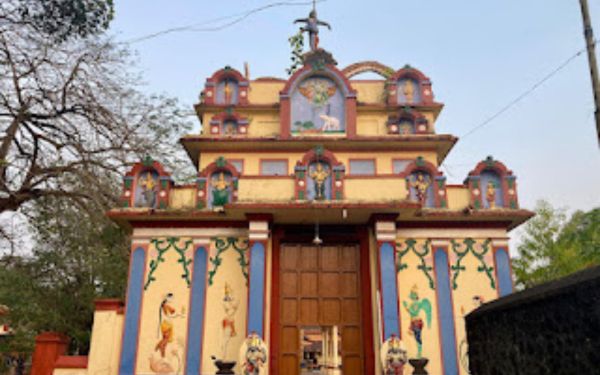
10. Sri Imayavarappa Perumal Temple
Sri Imayavarappa Perumal Temple
Location: Thirucchenkundroor, Alappuzha
Perumal’s Name: Sri Imayavarappa Perumal
Thayar’s Name: Senkamalavalli Thayar
Temple’s Old Name: Thirucchenkundroor
Vimanam’s Name: Utpala Vimanam
Temple Tank: Papavinasa Theertham
Azhwar: Nammalvar
District: Alappuzha
Nearest Airport: Cochin International Airport
Nearest Railway Station: Mavelikara Railway Station
Transport Bus Stand: Mavelikara KSRTC Bus Stand
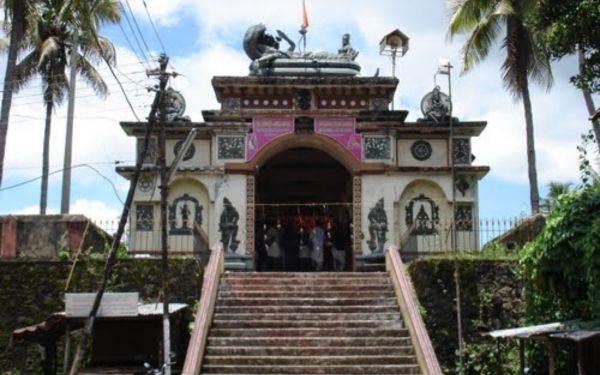
11. Sri Padmanabhaswamy Temple
Sri Padmanabhaswamy Temple
Location: Thiruvananthapuram
Perumal’s Name: Sri Anantha Padmanabhaswamy
Thayar’s Name: Padmavathi Thayar
Temple’s Old Name: Ananthapuram
Vimanam’s Name: Hemakoota Vimanam
Temple Tank: Padma Theertham
Azhwar: Nammalvar
District: Thiruvananthapuram
Nearest Airport: Trivandrum International Airport
Nearest Railway Station: Thiruvananthapuram Central Railway Station
Transport Bus Stand: Thampanoor Bus Stand

Namma Alwar
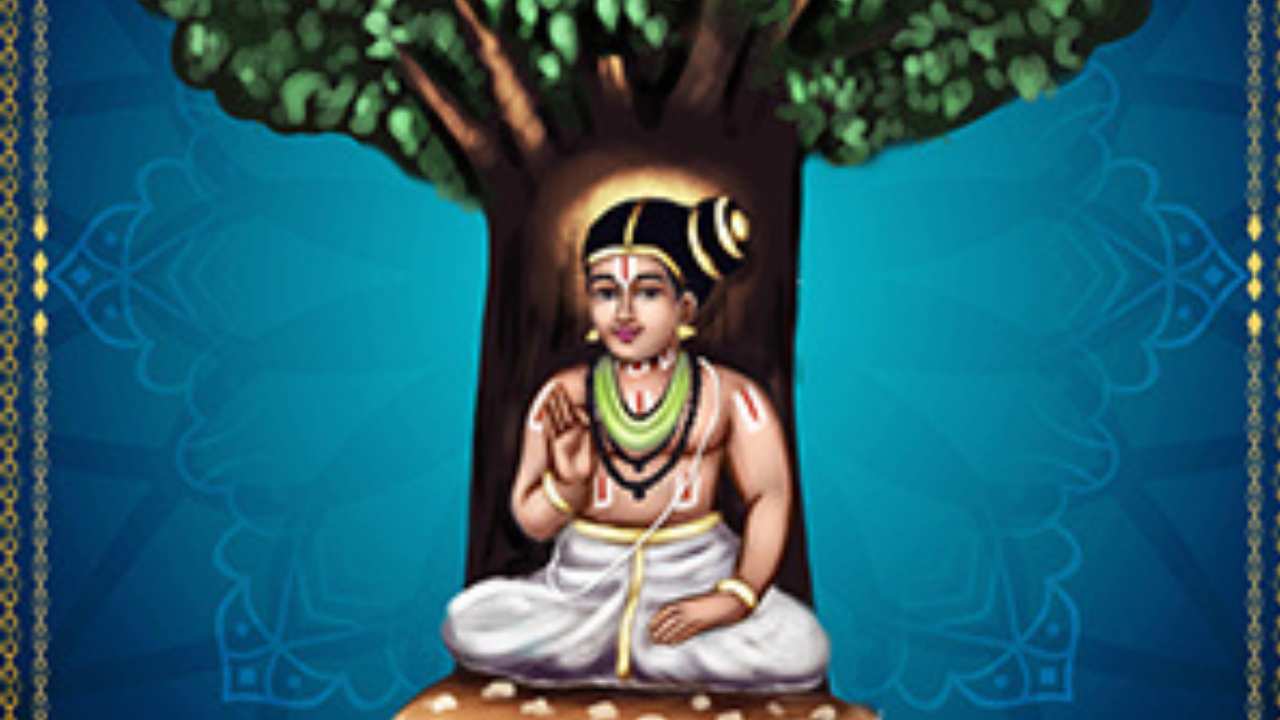
Namma alwar, a Vaishnavite poet known for his devotional hymns dedicated to Lord Vishnu known as Pasurams, is often associated with Kerala Divya Desam temples listed earlier. His works form an integral part of their worship and rituals performed in many Vaishnavite temples across Kerala including those listed under Divya Desams.
Namma alwar was associated with each temple listed, signifying his close association and significance within Vaishnavite tradition.
Namma alwar (also spelled Sadagopan), also known simply as Nammalvar or Sadagopan in South India’s Vaishnavite tradition. Born around 9th Century CE in Thirukurugur (modern-day Alwarthirunagari) Tamil Nadu, his life and poetry are intertwined with devotion for Lord Vishnu.
Namma alwar is revered as one of twelve Alwars (saints) who created the Nalayira Divya Prabandham hymns, revered for their profound spiritual insights and lyrical beauty. Nammalvar’s verses express his affection and dedication to Vishnu in various forms – portraying Him in various guises while celebrating His divine attributes.
Namma alwar’s influence extends far beyond poetry; he is revered as a spiritual guide whose hymns continue to inspire generations of devotees. His compositions form an integral part of worship services at Vaishnavite temples such as Divya Desams where his verses are frequently sung during ceremonies.
Namma alwar’s legacy lives on as an embodiment of devotion and literary excellence, embodying the essence of Bhakti (devotion) to Lord Vishnu within the vast fabric of South Indian religious and cultural traditions.
Kulasekhara Alwar
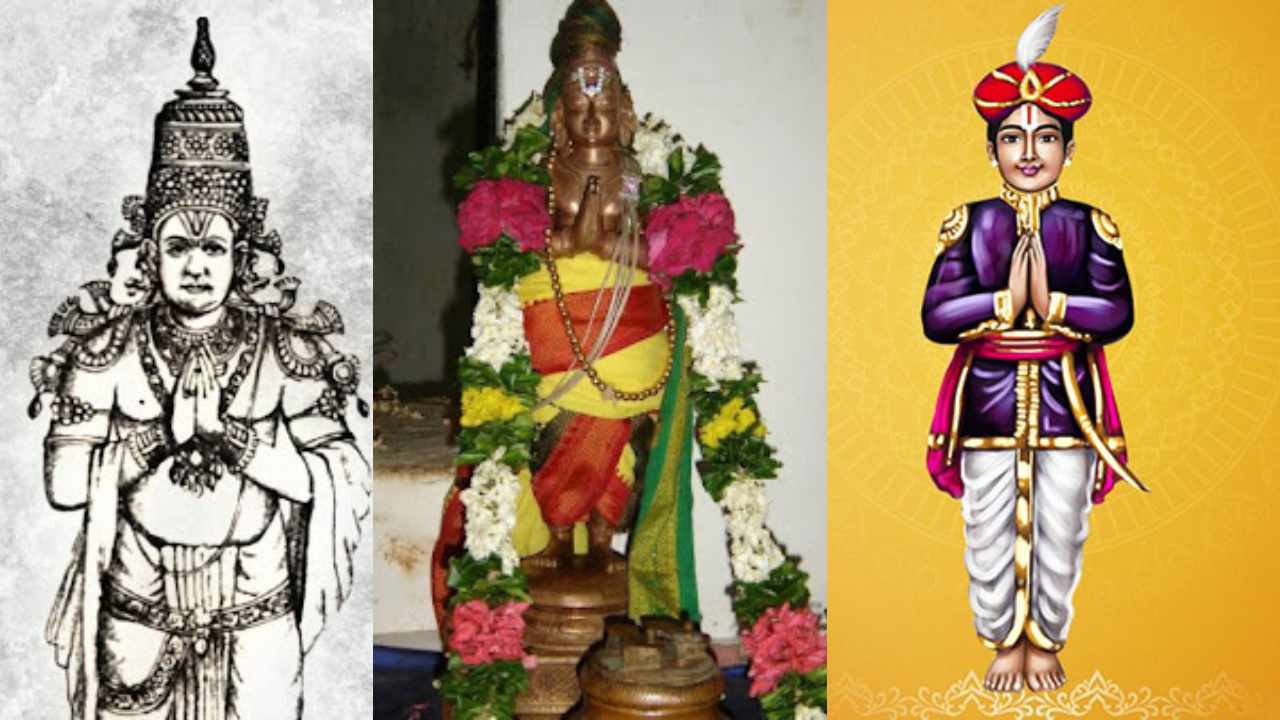
Kulasekhara Alwar (or Kulashekhara Azhwar), born into Kerala’s Chera Dynasty but later abandoning their rule to dedicate himself solely to Lord Vishnu, is considered an influential figure of South Indian bhakti movement and Sri Vaishnavism. A well-revered poet-saint of Kulasekhara Azhwar became revered figure of Sri Vaishnavism during his lifetime. He became one of the greatest saint poets ever.
Kulasekhara Alwar’s legacy lives on through his devotional compositions that are included in the Nalayira Divya Prabandham, the sacred Tamil canon of Vaishnavism. Kulasekhara Alwar’s hymns are beloved hymns known for their beautiful melodies and profound devotion, showing his reverence and longing to merge with Lord Vishnu; Kulasekhara Alwar also utilized his works to explore personal spiritual awakening and surrender as part of their works’ offerings to celebrate Vishnu as well.
Kulasekhara Alwar’s literary contributions focus on Bhakti Yoga as a means to achieve liberation (moksha) and divine grace, inspiring devotees across South India with his poetic verses which serve as timeless testaments of his faith and devotion for the Supreme Lord. His life represents harmony between temporal duties and spiritual aspirations, inspiring generations with poetic expressions of his devotion and humility.
Conclusion
Kerala’s 11 Divya Desams offer an unforgettable blend of spirituality, history and culture; essential landmarks in Vaishnavite tradition. Not just places of worship but integral parts of regional spiritual fabric as they foster deep connections with divine. Each temple boasts distinctive architectural styles, beautiful temple tanks and profound spiritual atmosphere for an immersive spiritual experience.
Each temple holds its own story and significance; from the grandiosity of Sri Padmanabhaswamy Temple in Thiruvananthapuram renowned for its splendour, including Vishnu’s majestic reclining pose, to Palakkad’s serene Sri Uyyavantha Perumal Temple offering spiritual respite – each Divya Desam offers its own journey. Alvars, or poet-saints from antiquity whose hymns resonate through these sacred spaces to bring divine energy that draws people in.
Kerala’s Divya Desams represent its rich cultural history through intricate carvings, ancient scriptures and festive festivals celebrated at these temples – which serve to uphold centuries of traditions while protecting Vaishnavism for future generations.
Pilgrims will find visiting these Divya Desams an enriching spiritual journey; each temple visit provides moments for reflection, prayer, and an increased knowledge of the divine. Travelers and historians also find these temples captivating as a snapshot into regional architecture marvels and historical narratives.
Conclusion The 11 Divya Desams in Kerala are more than simply religious sites – they serve as places of faith, devotion and cultural heritage that foster spiritual renewal in all who visit. Their existence stands as testaments to enduring spiritual traditions of Kerala while providing solace and inspiration to visitors of all kinds – be they seeking spiritual comfort, historical knowledge or cultural enrichment. All visitors find an experience unique and enriching at these temples which provide timeless connections between divinity and humanity as well as remind us about faith’s profound effect on shaping lives and communities over time.
